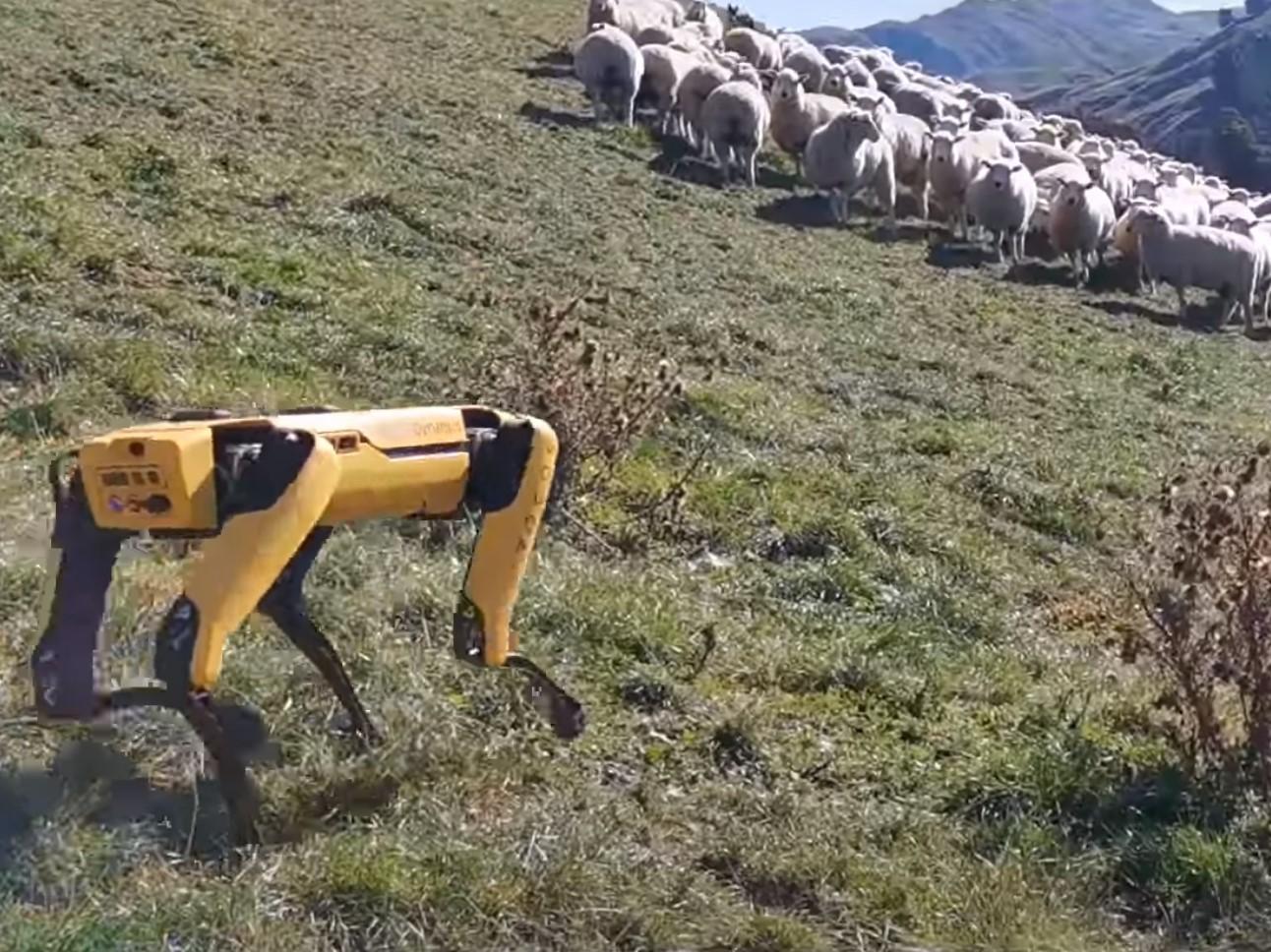Robot sheep dog herds animals in New Zealand
Demonstration of Boston Dynamics' robot Spot included patrolling orchards and other autonomous farm work
Farmers in New Zealand have used a four-legged robot to herd sheep, patrol fields and perform other agricultural tasks.
The feats were carried out as part of a demonstration of Spot – a robotic dog developed by Massachusetts-based engineering firm Boston Dynamics.
Equipped with software developed by robotics company Rocos, Spot was controlled remotely to shepherd sheep across a mountainside.
“The age of autonomous robots is upon us,” claimed Rocos chief executive David Inggs. “Our customers are augmenting their human workforces to automate physical processes that are often dull, dirty, or dangerous. Organisations can now design, schedule and manage inspection missions remotely.”
Spot’s abilities include climbing stairs, traversing rough terrain, and even opening doors. Its versatility means it can be adapted for a variety of rolls, with one recently deployed in a park in Singapore to enforce social distancing measures.
Since 8 May, a version of the robot has been patrolling a two-mile stretch of pathway in the Bishan-Ang Mo Kio Park. Using its array of sensors to monitor the park’s occupants, the robot is programmed to “bark” a warning at people standing too close to each other.

The emergence of the coronavirus pandemic could lead to a new era of robotic human helpers, according to some researchers, who cite the rapid development of robots designed to reduce human exposure to the deadly virus.
“Already, we have seen robots being deployed for disinfection, delivering medications and food, measuring vital signs, and assisting border controls,” a leading group of experts wrote in a recent editorial in the journal Science Robotics.
“Opportunities lie in intelligent navigation and detection of high-risk, high-touch areas, combined with other preventative measures. New generations of large, small, micro, and swarm robots that are able to continuously work and clean could be developed.”
A variety of robots are already being used in different roles around the world, from a fleet of robots in Spain designed to boost the country’s Covid-19 testing capacity, to robot porters delivering food at a hotel in China.
Join our commenting forum
Join thought-provoking conversations, follow other Independent readers and see their replies
Comments
Bookmark popover
Removed from bookmarks